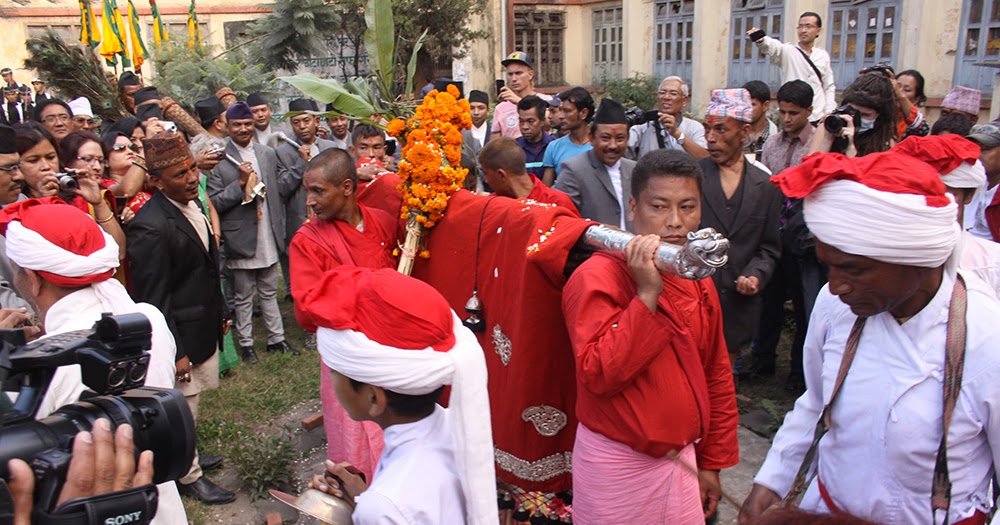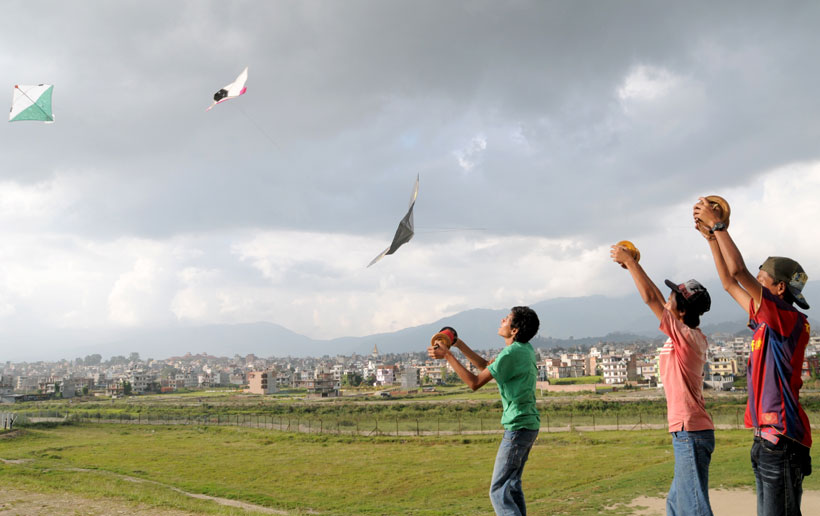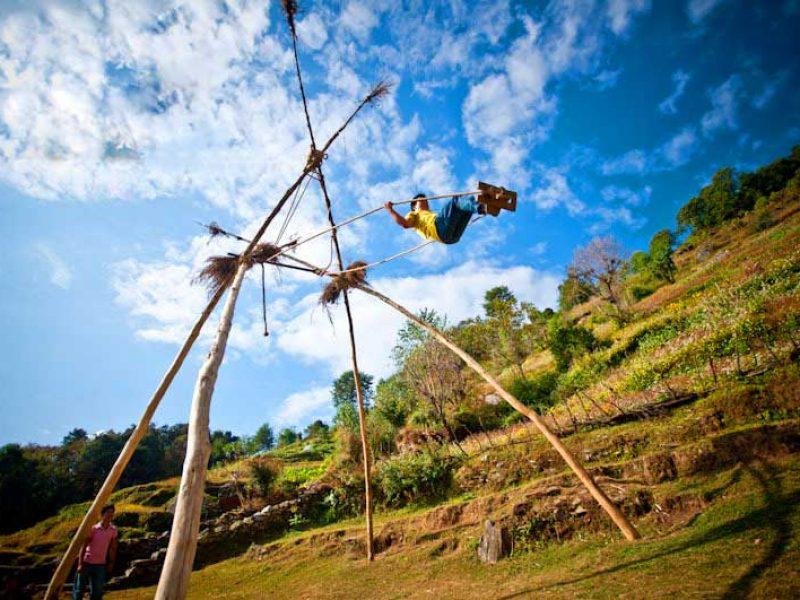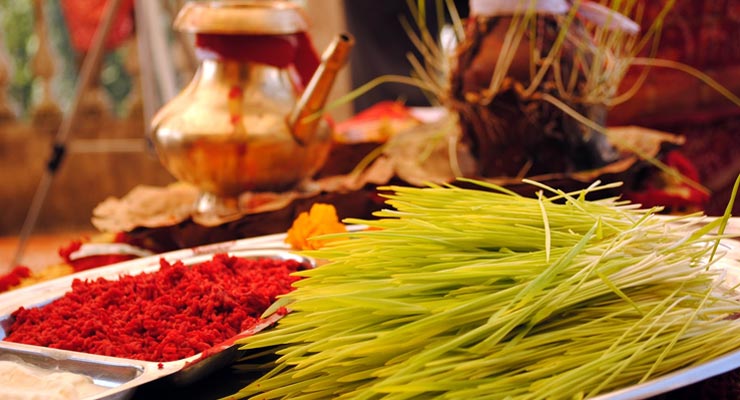
Fulpati at Dashain Festival Nepal

People Kite fly highly decorative kites from their roof tops and elsewhere and shout out “Changa Cheit” whenever kite strings get tangled.

Dashain Festival
- Kites a flown as Dashain Festival draws near and during the festival. People fly highly decorative kites from their roof tops and elsewhere and shout out “Changa Cheit” whenever kite strings get tangled.
- Playing card games is common during Dashain. Families get together to play for both money and for fun. While all ages take part in kite-flying, kids usually are out flying their kites while adults play the card games.
- Homes are cleaned thoroughly and decorated ornately. This is meant to be a gesture to the Hindu “mother goddess” to come down and bless the home with good luck. Distant family members also gather and enjoy reunions in the clean and beautiful houses.
- Many purchase new clothing and wear it at this time of year. Those who live in dire poverty don their best clothing and may buy clothes at few other times of the year besides Dashain.
- Temporary swings are constructed out of bamboo and set up for children to play at. Adults even stop to try out the swings, which can be up to 20 feet high. They are disassembled at the end of the festivities.
- Literally thousands of animal sacrifices are made, including buffalo, rams, and ducks. They are meant to appease Hindu goddesses and are sacrificed at temples all over the country. Many also rise early in the mornings and visit temples to worship various gods.
- Since Dashain Festival arrives just after the harvest, there is much rice and grain in homes at this time of year. Worshipers use pigmented, red rice, called “tika,” to mark their foreheads. Some also mark them with a white circle instead, however.

Dashain Tika
- Attend numerous small fairs held in Nepalese villages, which often have Ferris wheels and other rides and entertainment. In major cities, like Kathmandu, you can expect to find larger fairs with more options.
- Listen to Nepalese musical programs held at this time of year. There is “Dashain music” as surely as there is Christmas music, and it is called “Mal Shree Dhun.” In the Terai and Madhesh regions, you will especially find many musical opportunities.
- Observe Dashain processions through the “three royal cities” of the Kathmandu Valley. The spectacle is very colorful and busily attended. It has a religious bases, for it involves the carrying of numerous statues of Hindu gods.




